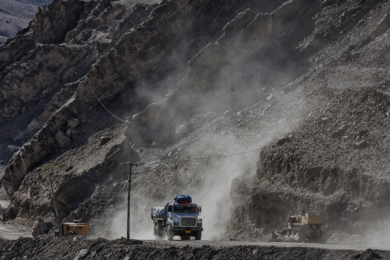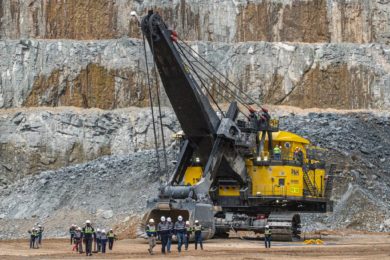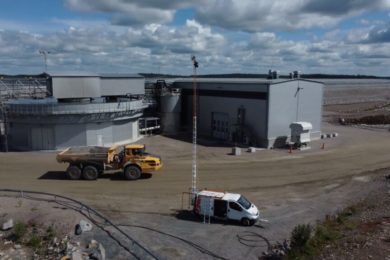Chatham Rock Phosphate Ltd has released a statement to “reconfirm that it offers a secure, low cadmium and ethical phosphate resource option to NZ farmers.” New Zealand needs to use its own source of ethically-produced, environmentally-friendly phosphate rock rather than importing product from a disputed territory, Chatham Rock Phosphate Chief Executive Chris Castle said on May 8. He was commenting on the interception and detention, by the Western Sahara liberation movement, of a shipment of phosphate rock on route for New Zealand.
“This is the sort of supply disruption which we have been signalling for years. As both New Zealand fertiliser manufacturers source a large part of their phosphate rock from that area, the implications for farmers and the agriculture sector (the backbone of our economy) are serious. It underlines the strategic value of our deposit.
Most of the rock phosphate imported into New Zealand comes from mines in the Western Sahara which has been under armed occupation by Morocco since 1975. The trade has continued despite this – and the 1991 commitment of the United Nations (and subsequent sanctions) to ensure Western Sahara benefits from self-determination.”
Castle said the Chatham Rise resource is not only an ethical source but it also has among the lowest known levels of cadmium. “To put it in a nut shell, Chatham offers a secure, ultra-low cadmium supply of rock phosphate – with no associated ethical baggage.” Castle said the current issue is also a good time to consider more environmentally sustainable alternatives to current fertiliser products. “The rock coming (or not coming) from Morocco is used to make superphosphate, the predominant fertiliser used in New Zealand to apply phosphorus to soils. It’s well established this results in high levels of run off with resulting detrimental effects to our waterways. Research indicates it can also be detrimental to soil health over the long term. The solution to both problems is the use of Chatham rock phosphate as a direct application fertiliser. We can deliver a secure and sustainable local supply of low-cadmium phosphate that will also reduce fertiliser run-off into waterways, produce healthier soils and shrink fertiliser needs over time.”
The resource, with an estimated worth of $5 to $7 billion according to the company, represents one of New Zealand’s most valuable mineral assets and is of huge strategic significance because phosphate is essential to maintain New Zealand’s high agricultural productivity. Chatham proposes to extract up to 1.5 Mt/y a year of phosphate nodules from the top half metre of sand on identified parts of an 820 km2 area on the Chatham Rise, 450 km off the west coast of New Zealand, in waters of 400 m.
“Our environmental consenting process has established extraction would have no material impact on fishing yields or profitability, marine mammals or seabirds.” Castle said Chatham is also seeking other sustainable rock phosphate sources, to move from being a single project company and take more control of its destiny. “Recent approval of a Namibian environmental consent for a marine phosphate mining resource also opens the door for Chatham to advance its own Namibian permit applications. Chatham applied in 2012 for prospecting permits over five distinct areas well offshore Namibia, some not far from the area held by the successful applicant. These 2012 applications were lodged with the confidence that based on research undertaken to date, this area of the seabed likely contains substantial quantities of rock phosphate.”










